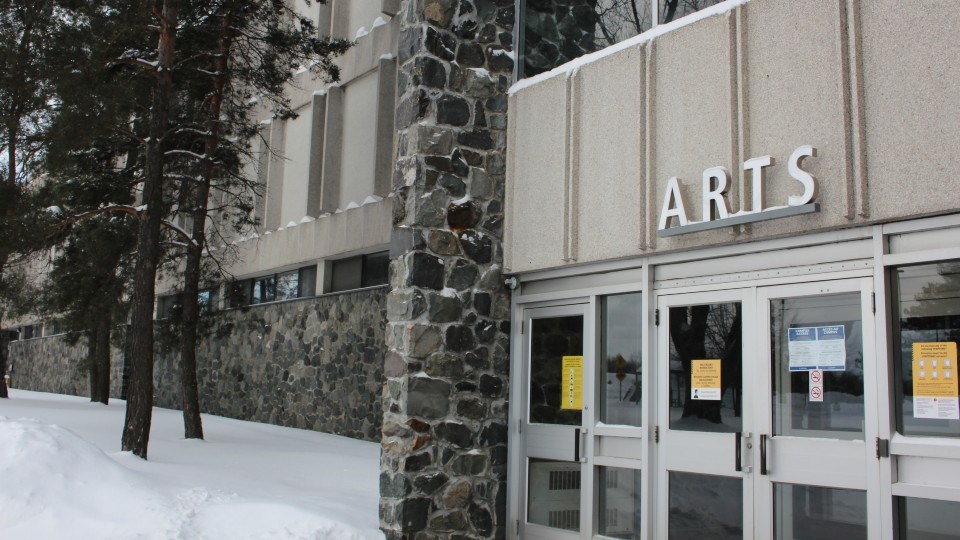The bad news keeps coming for Laurentian University - applications from domestic high school students through the Ontario Universities’ Application Centre (OUAC) are down 44 per cent compared to last year.
Laurentian University president Robert Haché revealed these statistics in his written report to the university’s senate, which held its regular monthly meeting Jan. 18.
He said the decrease in applications is “disappointing but not unexpected,” given the ongoing insolvency restructuring at the university.
Laurentian’s enrolments for the current school year, 2021-22, are also down 14 per cent overall, as well as down a little more than 30 per cent among first-year students.
The information on new applications to Laurentian for the 2022-23 school year is based on the Jan. 13 OUAC deadline for direct-entry high school applications.
Haché pointed out that applicants can apply after this deadline, but Laurentian typically receives the majority of high school applications by the deadline.
“Laurentian expects to continue to receive more applications, right up to the deadline; however, the current trends have been consistently behind by more than 40 per cent since late fall,” the university’s president said in his report.
He also provided a regional breakdown for the Laurentian application numbers, stating that applications from the Sudbury area are down 33 per cent, 36 per cent in the GTA, 54 per cent in the northeast and 57 per cent in the central part of the province.
“Additionally, when looking at all domestic applications (all application types for all academic levels), English Language programs are slightly better trending at -42 per cent when compared to French Language programs, which are trending at -52 per cent year over year,” Haché said.
“On a more positive note, our fully online degree programs overall are showing less of a year over year decrease at -1 per cent when compared to our on campus degree programs at -44 per cent.”
He told those at the senate meeting that the application decrease is “absolutely something to be concerned about.”
“But at the same time, it's not something that should be set to be unexpected, that there would be a continuing impact as we continue through the progress of the process (of restructuring),” Haché said.
He added that the university continues to focus its efforts on recruitment for the next school year, and its admissions department will be “re-reviewing all applications to ensure the maximum number of offers are distributed to the eligible applicant pool on an ongoing basis.”
Haché said the provincial financial support package provided to Laurentian last month should “build confidence in the students applying for the programs we have to offer.”
Laurentian professor and ecologist Albrecht Schulte-Hostedde referred to the “cost” to LU’s reputation as it relates to the university’s recent well-publicized legal battles with Ontario Auditor General Bonnie Lysyk and the Ontario legislature regarding privileged documents.
“I hope that they're doing the right thing, because the cost is very high,” he said. “The cost to our reputation, the cost in terms of the 40 per cent decline in … our applications, you know, the cost is very high …
“I mean, it's very difficult for a member of the Laurentian community, as a member of senate, to watch the academic reputation of this institution be driven into the ground by this action.”
Haché said the university has put an offer on the table that includes the disclosure of privileged information “up to and excluding the CCAA process,” and that it’s important for people to know that the auditor general has also requested information sealed by the courts.
The CCAA is the Companies’ Creditors Arrangement Act, the federal statute under which Laurentian continues to undergo insolvency restructuring.
“So, you know, we do seek the guidance of the court, because I think in such cases, it is important to have, so that we're doing the right thing,” Haché said,
“And make no mistake, I know the board members, and I personally, am absolutely trying to do the right thing for the university at each step along the way.
“I absolutely appreciate the consequences of this whole restructuring process on the reputation of the university, but recognize that it is also, at the time it was initiated, the only possibility for this university to have a future.”
